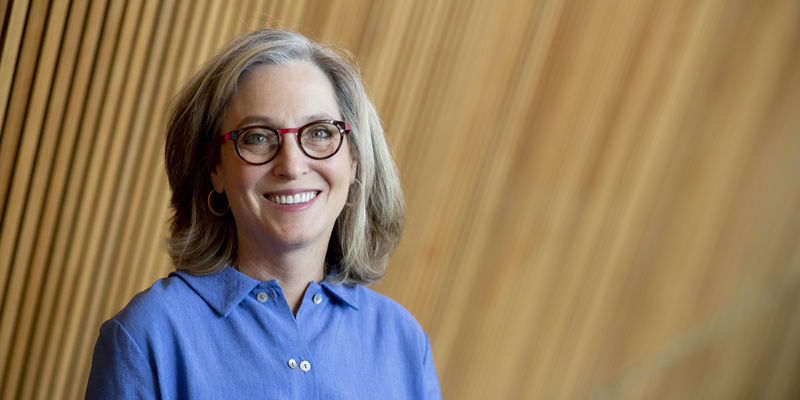A closer look at Temple’s Data Verification Unit
Since its launch in 2019, DVU has served as a critical safeguard for the university. Part of Temple’s Ethics and Compliance Office, the unit works to prevent the dissemination of inaccurate information about the university.

Whether it’s a Temple University news release, an undergraduate admissions brochure or the webpage for an academic program, the process for publishing these items is the same. Before any of them are made available for public consumption, they must be vetted to ensure the accuracy of all the information included in the story, pamphlet or site.
It’s a process known as data verification, and at Temple, it is managed by the university’s Data Verification Unit (DVU), which operates out of the Ethics and Compliance Office (ECO).
“The need for accurate, trustworthy information has never been more pressing,” Temple President John Fry said. “The work of our Ethics and Compliance Office and its Data Verification Unit is critical. When information is released externally from Temple, our community and stakeholders can feel confident in its accuracy, and that is because of the important work performed by DVU.”
The genesis for the establishment of DVU can be traced back to 2019. Following the discovery of inaccuracies in data that had been provided to U.S. News & World Report, the university created DVU to verify statistical, demographic or numerically descriptive data used for marketing or fundraising purposes or submitted to accreditation bodies, government entities or rankings organizations.
The creation of a dedicated unit like DVU is uniquely at the forefront of preserving data integrity in higher education, and it serves as a critical safety net in preventing the dissemination of inaccurate information. It is believed that Temple is one of the only universities in the nation to have a centralized data verification unit. Since its establishment, a handful of other universities and colleges have reached out to Temple, expressing a desire to create a similar unit at their institution.
“We really hold up DVU as the gold standard,” said Susan Smith, the university’s chief compliance officer who oversees DVU. “We work efficiently and effectively to ensure accuracy so that outward-facing data is trustworthy. Also, ensuring accuracy of data across all schools, colleges and business units in the university is something that is essential to any strong compliance program.”
DVU reviews and verifies reports, documents, publications, online postings and similar materials that encourage attendance at Temple or are submitted to accrediting bodies, government entities or ranking organizations.
For example, every piece of data submitted to a rankings agency or accrediting body makes its way through DVU. Similarly, every number or statistic touted on a university admissions brochure or news release is also verified by DVU. Additionally, DVU makes training available to the entire university on data integrity and DVU’s review process.
“What is also great about DVU is that since its establishment six years ago, it has really amplified the development of a culture committed to data accuracy,” said Andrea Seiss, senior director of ethics and compliance. “It has been ingrained in our processes so that when colleagues are working on projects, they understand that they need to loop in DVU early and often. They also understand the important role that DVU plays in the larger university environment.”
The importance of DVU at Temple is underscored by the fact that it is part of ECO, which was also established in 2019 as part of Temple’s goal to further its commitment to fostering a culture of integrity and ethical behavior and to ensure that students, faculty and staff have direct and clear access to the resources needed to uphold the highest standards of integrity.
“We always respected principles of compliance throughout the university, but responsibility for compliance was dispersed and largely fell to each school, college or unit," Smith said. “That’s still the case, but this was the first time that we centralized oversight and coordination of all of the compliance work in one division.”
A centralized compliance office like Temple’s is still a bit of an anomaly in higher education. Many universities and colleges utilize a highly decentralized model; others have compliance units that report up through their university's general counsel office. At Temple, and in accordance with best practice in compliance functions, ECO’s independence is protected with a direct reporting responsibility to the Board of Trustees, though much of its day-to-day activity is coordinated with the administration.
Most recently, ECO took on additional responsibilities as Equal Opportunity Compliance, Title VI and Title IX became a part of the office’s portfolio. The restructuring, which had been in the planning stages since President Fry started at Temple, was done because of the natural alignment among these units. It also provided an opportunity to strengthen training, compliance and resource coordination across the university.
More information on ECO and its various functions like DVU can be found on the Ethics and Compliance website. ECO’s helpline, where Temple students, faculty and staff can report compliance issues anonymously, can also be accessed 24/7 by telephone at 800-461-9330 or via text at 215-253-5784.


